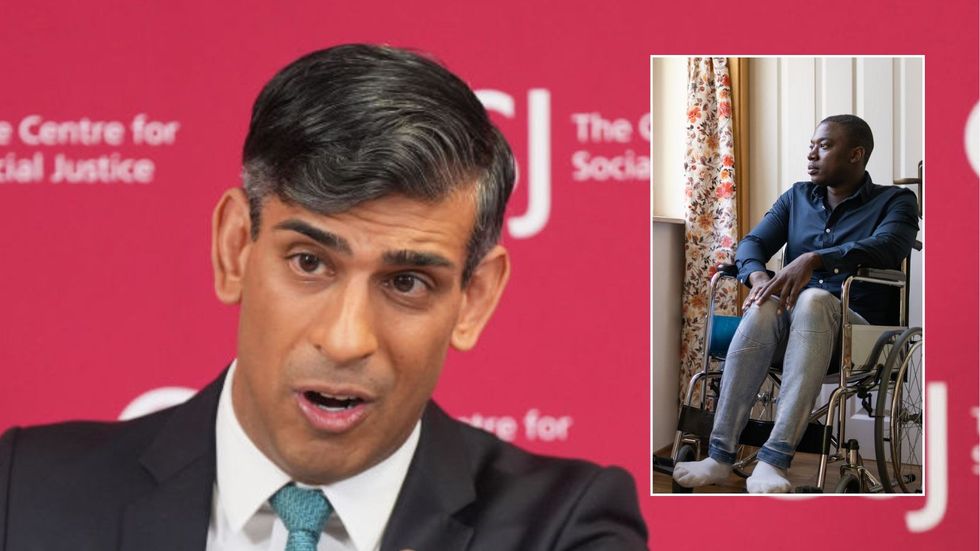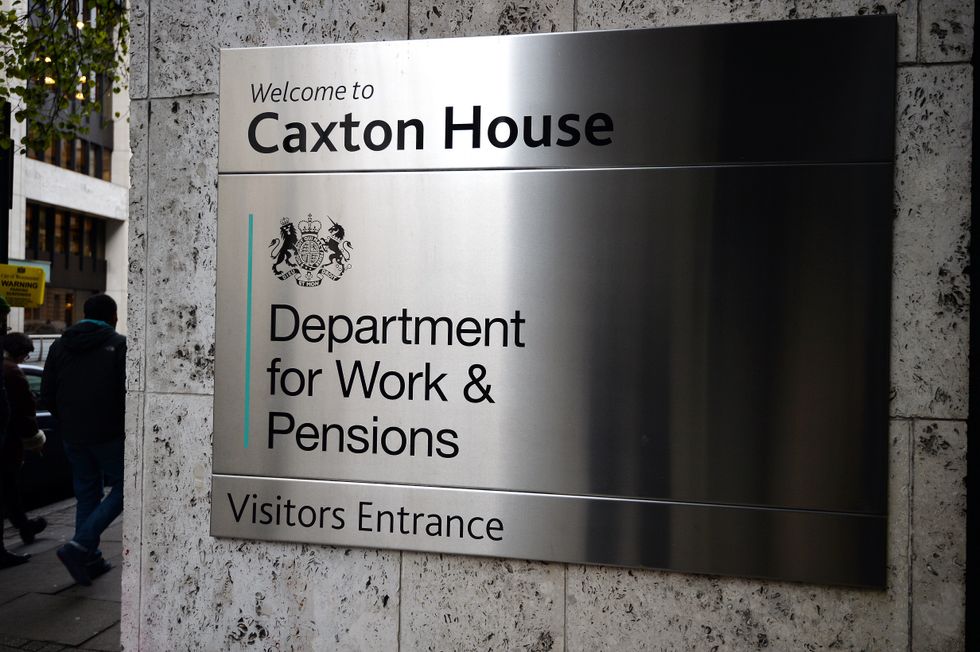Rishi Sunak slammed for 'slashing disabled people's income' as part of PIP overhaul
The Prime Minister has promised to reform the benefits system with a consultation into PIP set to take place
Don't Miss
Most Read
Trending on GB News
Rishi Sunak’s plan to overhaul the benefits system could “slash disabled people’s incomes”, campaigners are fearing.
The Prime Minister outlined his plan to tackle the rise in “unsustainable” spending on the benefits system, notably Personal Independence Payment (PIP), earlier today.
Sunak today announced plans to tighten the work capability assessment which will require more people with “less severe conditions” to seek some forms of employment.
The Conservative Party leader also suggested some people with anxiety or depression could be better served with access to mental heath treatment rather than DWP payments.
Sunak described it as his “moral mission” to reform the welfare state and get 850,000 economically inactive people back into work.
He said: “We now spend £69billion on benefits for people of working age with a disability or health condition.
Do you have a money story you’d like to share? Get in touch by emailing money@gbnews.uk.

Rishi Sunak is under fire for his proposal to overhaul PIP
GETTY
“That’s more than our entire schools budget, more than our transport budget, more than our policing budget.
“And spending on Personal Independence Payments alone is forecast to increase by more than 50 per cent over the next four year. That’s not right, it’s not sustainable, and it’s not fair on the taxpayers.”
As part of this overhaul, a consultation will take place into PIP which will see the assessment procedure and eligibility criteria scrutinised.
Anticipating backlash to his comments, he asserted that he does have compassion for those applying for disability benefits.
Sunak added: “There is nothing compassionate about leaving a generation of young people to sit alone in the dark before a flickering screen, watching as their dreams slip further from reach every passing day.
“And there is nothing fair about expecting taxpayers to support those who could work but choose not to. It doesn’t have to be like this. We can change, we must change.”
This has not stopped disability rights groups from slamming the Prime Minister with Scope’s director of Strategy James Taylor sharing that called are “pouring into our helpline” from concerned disabled people.
Taylor explained: “This feels like a full-on assault on disabled people. These proposals are dangerous and risk leaving disabled people destitute.
"In a cost-of-living crisis looking to slash disabled people’s income by hitting PIP is a horrific proposal.
“Life costs more for disabled people. Threatening to take away the low amount of income PIP provides to disabled people who face £950 a month extra costs isn’t going to solve the problem of economic inactivity.
LATEST DEVELOPMENTS:

This is part of the Government's wider plan to tackle "sick note culture" in the UK
PA“Sanctions and ending claims will only heap more misery on people at the sharp end of our cost-of-living crisis.
“Much of the current record levels of inactivity are because our public services are crumbling, the quality of jobs is poor and the rate of poverty amongst disabled households is growing.”
This month, the majority of benefit payments were awarded a 6.7 per cent boost from the DWP, including PIP. As such, the disability benefit payment’s daily living component rose to £108.55 at the enhanced rate and £72.65 at the standard rate. Furthermore, PIP’s mobility component now comes to £75.75 at the enhanced rate and £28.70 at the standard rate.
Work and Pensions Secretary Mel Stride said: "I believe our welfare system is about far more than benefit payments; it is about changing lives for the better.
"That is why we’re bringing forward the next generation of welfare reforms. We’ve already overhauled the outdated benefit system by introducing Universal Credit, and now we are building a new welfare settlement for Britain – one where no one gets left behind.
"The welfare reforms announced by the Prime Minister today will modernise the support available for those who need it the most, improve the value of the welfare system for taxpayers, and ensure that people are signed up to back to work support, not signed off."









